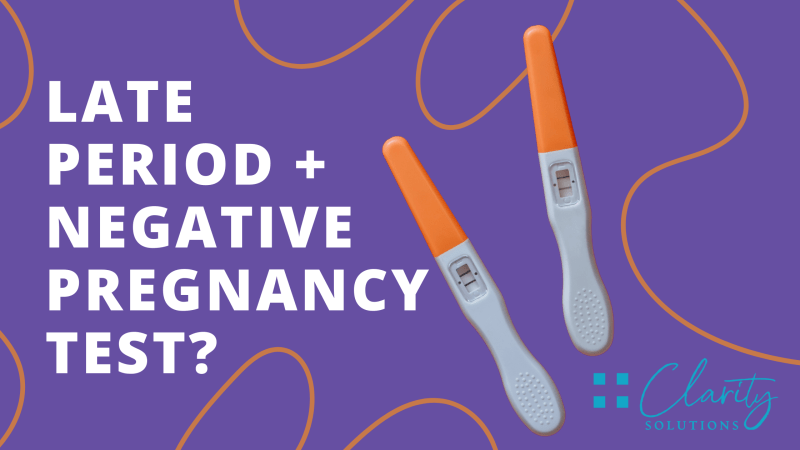If I Miss My Period When Will I Ovulate – Delaying brings up different thoughts and feelings depending on your current family planning goal. If you are determined to move forward on the path to parenthood and undergo fertility testing – a delay may mean a feeling of excitement and anticipation as you think about possible pregnancy and even pregnancy at home. Testing also has to be done.
If you are not trying to get pregnant, the delay may cause concern when you remember the last time you had sex, etc.
If I Miss My Period When Will I Ovulate

Let’s remember: Pregnancy is just one of the many reasons “Auntie Flo” may be late. Whether you are trying to get pregnant or not, it is important to be aware of other causes as they may indicate that there is something wrong with your hormonal health.
Early Pregnancy Symptoms: How To Tell Before A Missed Period
Before we consider the causes of delayed menstruation, this is really an important question. The answer corresponds to the period considered to be normal cycle length.
Less than 10% of women have cycles that last 28 days. This is important because it means that calculations based on the 28-day cycle are most often wrong.
This may involve calculating when you ovulate and when it is late enough – late enough for a pregnancy test to confirm. Be careful with anything that takes a 28 day cycle!
By cycle length we mean the first day of your period that you know is your period and the last day before your next menstrual cycle. (Cycle length is not the length of your bleeding.)
Why Is My Period Late? Why Our Cycles Act Crazy Sometimes.
The length of a normal cycle is 21 to 35 days, with the average period for most women being around 29 days. Cycle length is also expected to vary slightly. One month has 27 days, another has 30 and maybe even 26 days.
Everything is fine, everything is within normal limits. A cycle that lasts 2 to 5 days without other abnormalities (such as pain, irregular bleeding) is not a cause for concern.
So, if a normal cycle is 21 to 35 days long, give or take 2 to 7 days, what does this tell us about when your period is officially over? It’s very personal.

If you are the type of woman who bleeds regularly every 24-26 days, then you are right when you say that once your last menstruation has been on day 28, your period is over.
Why Is My Period Late And Top Period Questions
On the other hand, if you have wide variability in cycle length, i.e. 24 to 40 days, this is a better estimate of when you can consider delaying. (If your cycle length is this variable, consider consulting a doctor who can help you understand why.)
Explanation: Track your bleeding so you know how long your cycle is and what your length range is. This will be the most accurate and personalized way to find out when you are late.
This is the most common thought among women trying to conceive. Late menstruation means possible pregnancy. This is 100% true and here’s why.
If conception and implantation have occurred, the little new life implanted in the lining of your uterus will cause an increase in hormones such as HCG. (Yes, HCG is the hormone you test for in a pregnancy test.)
Is It Normal To Miss Periods?
HCG does several things to help pregnancy proceed, one of which is to keep the corpus luteum from resorbing after ovulation so it can continue to secrete progesterone. The continued production of progesterone keeps the uterine fluid stable. Durable underwear, no shedding, no menstruation. Read more about the physiology of your cycle here.
In the absence of pregnancy, ovulation occurs 11 to 17 days before menstruation. If you’re trying to figure out if you should take a pregnancy test and you know when you ovulated, take a test if your ovulation is more than 17 days away.
If you don’t know when you ovulate, you can take a pregnancy test instead of wondering. First, consider the information in the previous section and based on what is known about fluctuations in cycle length, consider whether you are indeed overdue.
:max_bytes(150000):strip_icc()/using-an-ovulation-calculator-or-calendar-1960233_FINAL_V2-e3210538e32447eb887f3ee50ebccd86.png?strip=all)
One of the most common causes of fluctuations in cycle length is stress. It is believed to date back to caveman times when our stress would come in the form of not having food to hide from or a bear running after us. When our body senses danger and scarcity, it says “No, this is not the right time to get pregnant” and delays ovulation. Delaying ovulation prolongs the entire cycle. Late menstruation.
Missed Period With Negative Pregnancy Test: 9 Causes
Stress comes in many different forms for the modern girl, none of which include animals with a sense of humor. Fixed work and school schedules, unstable relationships, restricted diets, exercising to the point of exhaustion without adequate time to recover, lack of sleep or sudden, mental health problems like depression or anxiety, people losing control because of politics – these There are all types of stress. Which can disrupt your cycle.
Is stress the reason you are late? Cycle tracking gives you data to tell you how strong your cycle is during periods of stress. Track your bleeding and measure your stress levels throughout your cycle.
Gaining or losing weight can disrupt your hypothalamic-pituitary-ovarian (HPO) axis, which is the fancy name for the hormonal pathway that connects your brain to your ovaries. Weight changes are considered a form of stress, and the more rapid the change, the more likely it is that your ovulation will be delayed or absent. Late or absent ovulation, delayed or missed menstruation.
There’s nothing wrong with wanting to control your weight, just be careful how you do it. Make small, steady changes instead of crash dieting or taking your physical activity level from 0 to 100. The key is consistency and what your HP OS likes.
Why Is My Period Late?
Not to be confused with premature ovarian failure, premature ovarian failure (POF) means that your ovaries stop ovulating before menopause, but it is not menopause. Only about 1% of women have POF and they have a 5-10% chance of miscarriage and stillbirth. Symptoms of POF include amenorrhea, or the absence of menstruation, which is why it may explain late menstruation.
A long cycle (i.e. more than 35 days) usually means an imbalance of estrogen and progesterone, two hormones that help regulate your cycle. Hormonal imbalance could mean low levels of insulin, thyroid, prolactin or testosterone. Consult a doctor who knows the hormonal intricacies of women’s menstrual cycles and ask about a test that can shed light on why your periods are unpredictable and often late. Chances are that at some point in your life you will be short of time. However, when it does happen, it can cause confusion or anxiety, especially if it is common.
And finding answers can sometimes create more confusion. That’s why we’re here – to uncover the secrets of your hormones and help you understand what’s normal, what’s not, and what next steps you should take.

Long answer: Since we know “probably” isn’t very helpful, it depends on a few things, including your age and overall health.
Will An Ovulation Test Be Positive If Pregnant?
If your periods started a few years ago, then yes, it is normal to miss regular periods! Your body is still learning how to cycle and your hormone levels probably haven’t peaked yet.
On the other hand, if you are older and near perimenopause, you are likely to experience vomiting from time to time. Your cycles may become longer and irregular, making you feel as if you have missed your period.
If you’re between the ages of 20 and 40, that is, in your “prime reproductive years,” frequent missed periods are a sign of an underlying ovulation or hormonal health problem. Irregular menstruation is called amenorrhea and can have many causes other than pregnancy.
If you’re in this situation, read on to find out why you’re running out of time and what you can do about it.
Did You Know That Late Or…
Amenorrhea is actually much more than just menstruation. This is because menstruation is ultimately the result of hormonal activity throughout the cycle, including ovulation.
During the first part of your cycle, the follicular phase, estrogen increases and causes the lining of the uterus to enlarge. The increase in hormones causes ovulation, i.e. the release of the egg.
After ovulation, in the second half of your cycle (luteal phase), progesterone increases and helps maintain the lining of the uterus in preparation for a possible pregnancy.

Finally, at the end of the luteal phase (usually of this length), progesterone decreases and the uterine lining loosens – and it’s your time!
Period 3 Days Late. Multiple Lh Surges This Month Has Me Unsure Of Actual Ovulation Vs Peaks And Wondering If I Missed Past Ones. Cycle Length Has Been Changing Too. Lh Never
So you see, in order to get your period, there are actually a lot of things that need to happen first, including a rise in estrogen, a rise in LH, ovulation, and a rise in progesterone during the luteal phase.
If you are missing your period and you know you are not pregnant, it may mean that you have not ovulated yet. If you track your ovulation, you will be able to tell if you have not ovulated and you will know.

